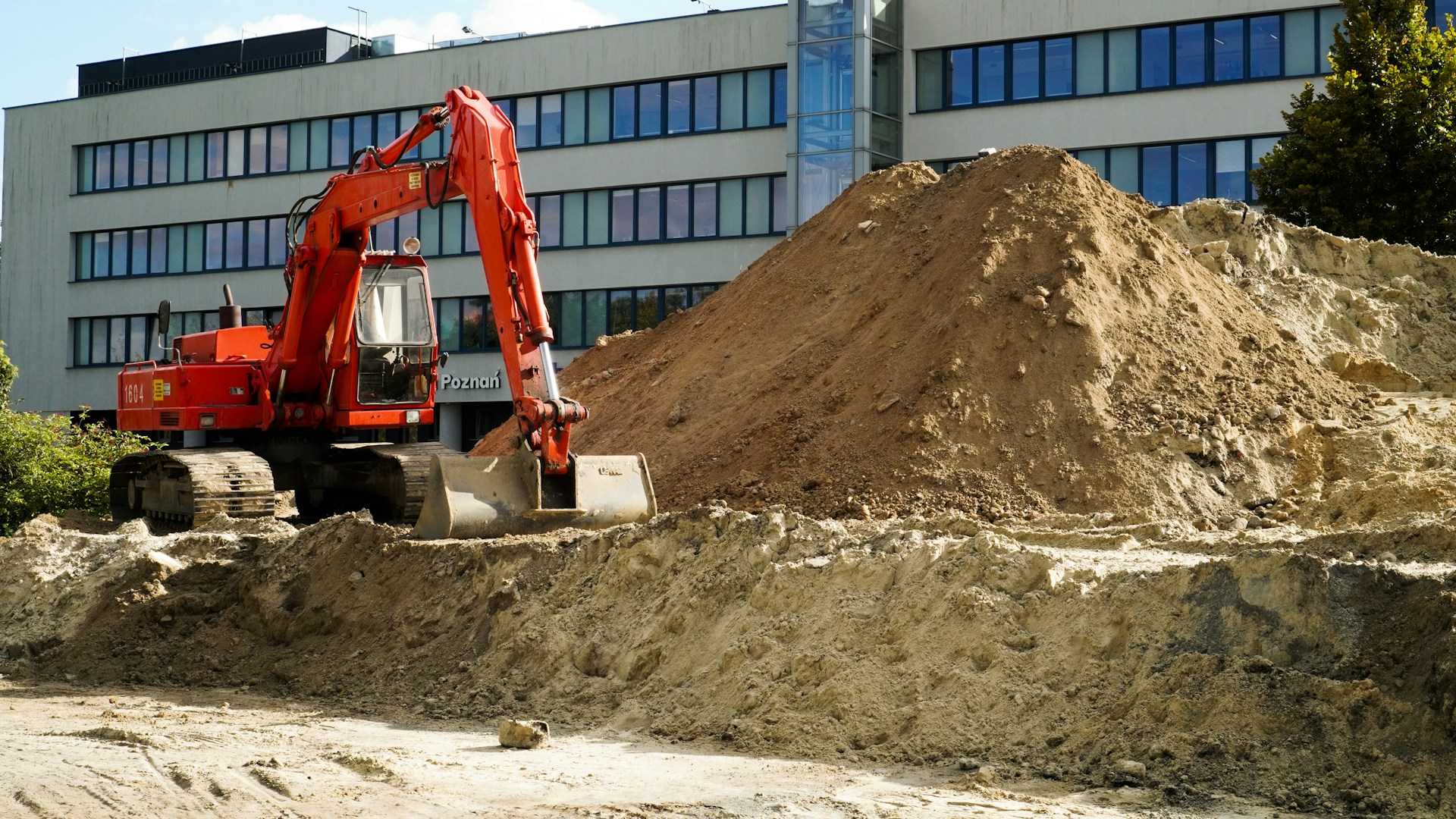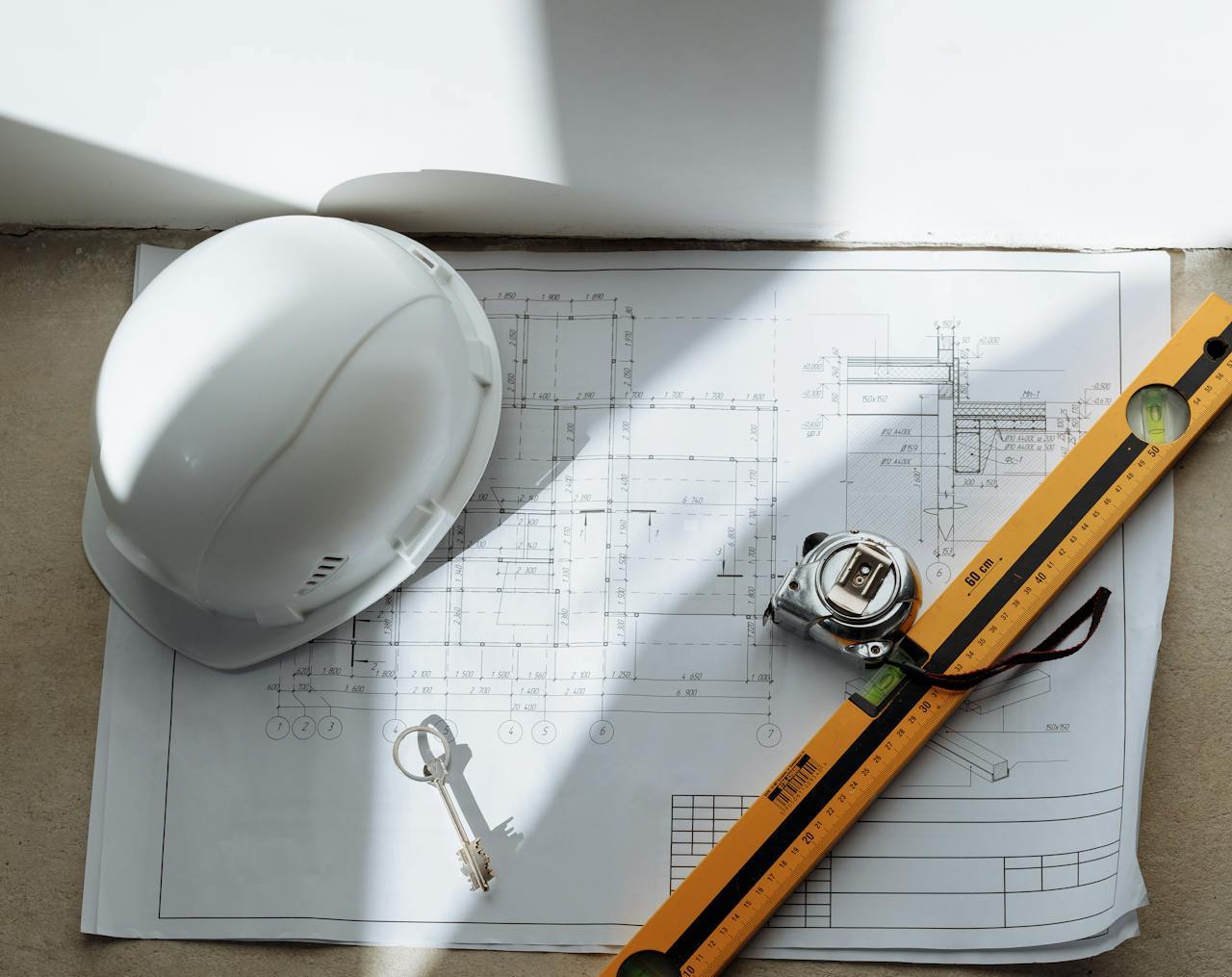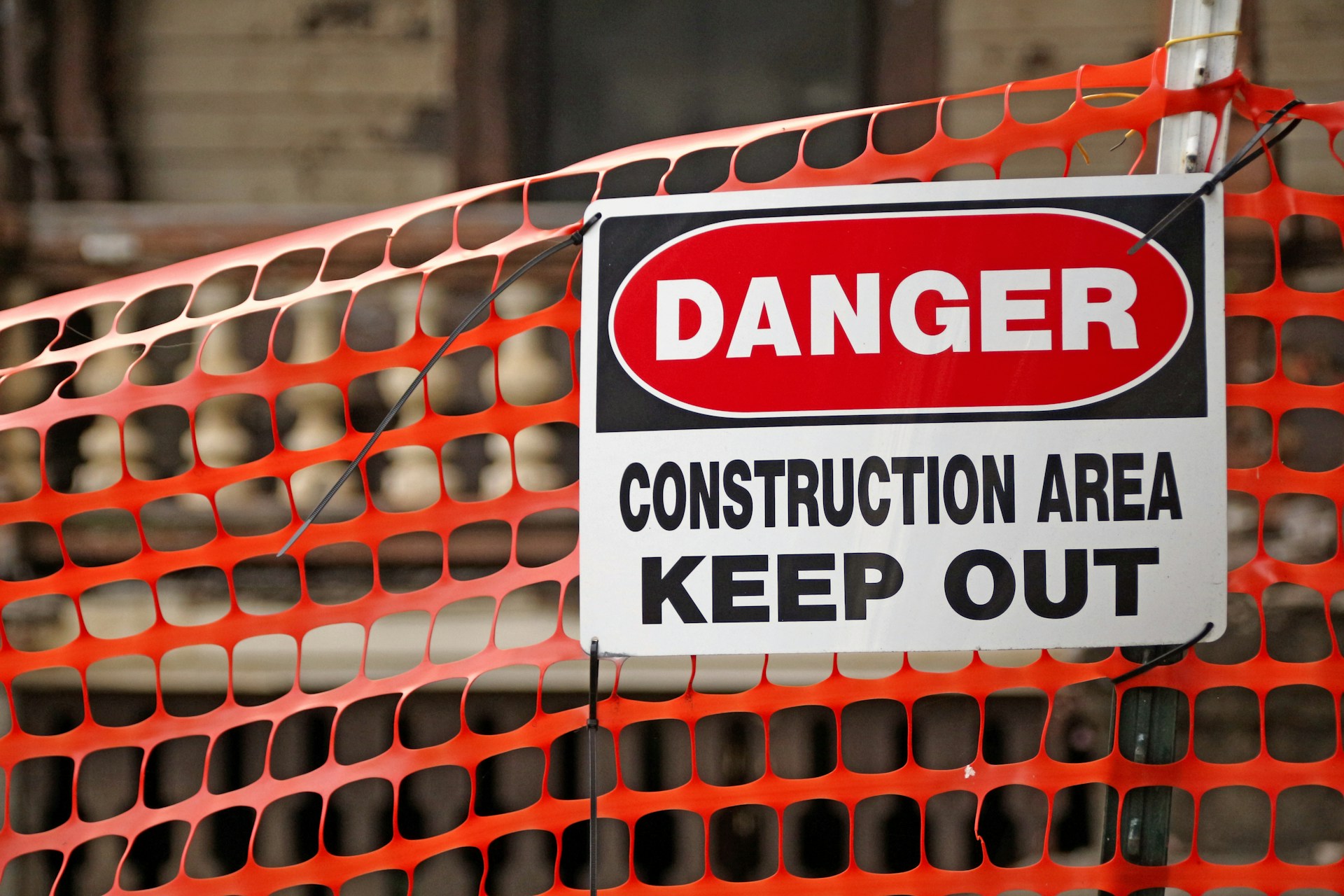Home improvement contractors are professionals who manage construction projects ranging from full-scale renovations to targeted repairs for property owners and developers. When planning to transform your space, selecting the right contractor becomes crucial for project success. Unlike the DIY approach popularized on weekend television shows, professional contractors bring specialized expertise, coordinated teams, and established processes to ensure work meets code requirements and quality standards.
We’ve seen firsthand how the right contractor partnership creates a seamless construction experience, whereas the wrong choice can lead to budget overruns, delays, and quality issues. The 2023 National Association of Home Builders survey revealed that over 65% of renovation project success is directly linked to contractor selection—making this decision perhaps the most critical one in your construction journey.
Finding the ideal contractor involves evaluating credentials, communication styles, and demonstrated expertise that align with your specific project requirements. Whether you’re developing a commercial property or renovating your personal residence, the vetting process remains consistent: you need a professional who understands your vision, respects your investment, and delivers quality craftsmanship.
Throughout this guide, we’ll explore our proven evaluation methodology that helps property owners identify contractors who bring both technical capabilities and professional reliability to their projects.
What Types of Home Improvement Contractors Are Available?

Choosing the right contractor can be overwhelming when planning a renovation. Understanding the different types of contractors and their specialized roles will help you find the right professional for your needs. Each type offers unique expertise that can significantly impact your project’s success.
General Contractors
General contractors serve as project managers for your entire renovation. They coordinate multiple aspects of construction, hire and direct specialized subcontractors, and oversee the complete timeline from demolition to final walkthrough. When your project involves multiple trades or significant structural work, a general contractor becomes your main point of contact.
General contractors handle building permits, material delivery scheduling, and code compliance inspections. They manage the construction sequence to ensure each trade completes their work in the proper order, preventing costly rework and delays. For complex renovations like kitchen remodels or home additions, this orchestration is crucial for maintaining both budget and timeline.
The value of a general contractor becomes particularly apparent when unexpected issues arise. If a plumbing problem is discovered during demolition or structural challenges emerge, they coordinate the necessary solutions with minimal disruption to the project flow.
Specialty Contractors
Specialty contractors focus exclusively on specific trades and are licensed in their particular fields. These professionals include electricians, plumbers, roofers, HVAC technicians, and masons. They bring deep expertise to their craft, typically operating under their own business licenses with specific insurance coverage for their trade risks.
Electricians handle everything from updating old wiring to installing new lighting systems and ensuring your home meets current electrical code requirements. Following the 2020 National Electrical Code updates, many homes now require additional safety measures like AFCI protection in bedrooms and GFCI outlets in more areas.
Plumbers address water supply lines, drainage systems, fixture installations, and increasingly, water conservation solutions. Mason contractors specialize in stonework, from marble countertops to stone pavers and fireplace facades. For targeted improvements in these specialized areas, hiring directly might be more efficient than going through a general contractor.
Appliance Repair Contractors
Appliance repair contractors specialize in diagnosing and fixing malfunctioning home appliances. With most major appliances having lifespans of approximately 10 years, repair contractors help extend that useful life through maintenance and component replacement. They typically work with refrigerators, washers, dryers, dishwashers, ovens, and HVAC systems.
These specialists bring manufacturer-specific knowledge and often carry common replacement parts in their service vehicles. Many are certified by major appliance brands like Whirlpool, GE, or Samsung, ensuring they understand the intricacies of proprietary systems. For homeowners facing the repair-versus-replace decision, these contractors provide valuable cost assessments.
Recent supply chain challenges have made appliance repair increasingly important, with replacement unit wait times sometimes extending to months. A good repair contractor can often restore functionality at a fraction of replacement costs, especially for higher-end appliances.
Independent/Freelance Contractors
Independent or freelance contractors typically work on an hourly basis for specific time periods. These professionals often handle smaller projects or specialized tasks that don’t require extensive coordination. Painters, drywallers, finish carpenters, and tile setters frequently operate in this capacity.
Freelance contractors offer flexibility in scheduling and can be more cost-effective for limited-scope work. They typically bring their own tools and materials, working directly with homeowners rather than through a general contractor. For projects like repainting a room or installing backsplash tile, this direct relationship often works well.
When hiring independent contractors, verify their insurance coverage and ask for references from recent local projects. Their reputation in the community and portfolio of completed work become particularly important evaluation factors since they may not have the backing of a larger company structure.
Design/Architect Contractors
Design and architect contractors help with structural changes and overall home design concepts. These professionals bring formal training in spatial planning, structural engineering principles, and aesthetic design. They translate your vision into actionable blueprints and specifications that construction teams can execute.
Architects are particularly valuable for projects involving load-bearing wall removal, home additions, or significant layout changes. Their expertise ensures structural integrity while maximizing functional space. For historic homes, they can help navigate preservation requirements while modernizing systems and layouts.
Some firms offer combined design-build services, integrating both the design and construction phases under one contract. This approach creates a seamless transition from concept to completion, with a single point of responsibility for both the design vision and construction execution. Recent industry trends show increasing demand for these integrated services, particularly for whole-home renovations and additions.
What Should You Include in a Home Improvement Contract?

At EB3 Construction, we’ve learned that detailed contracts prevent costly misunderstandings and establish clear expectations from the start. When managing home improvement projects, we ensure every contract includes specific elements to protect both property owners and our team throughout the construction process.
A carefully drafted contract serves as the project roadmap. We structure our agreements to include detailed specifications of materials, brands, and finishes—avoiding vague terms like “install kitchen cabinets” and opting for precise details, such as “install XYZ-brand maple kitchen cabinets with specific hardware and dimensions.” This level of detail helps prevent disputes over what was promised.
Scope of Work and Project Specifications
The foundation of any solid contract is a clearly defined scope of work. We document exactly what will be done, including specific measurements, materials, and quality standards. This written scope becomes the shared reference point when questions arise about project boundaries or deliverables.
We’ve found that including visual elements—such as floor plans, elevations, or product specification sheets—significantly reduces confusion. This detailed approach allows us to coordinate effectively with subcontractors, ensuring everyone shares the same understanding of the expected outcome.
Clarity on what’s excluded from the project is equally important. We specify which areas will remain untouched and any existing conditions that might impact work quality or completion.
Payment Schedule and Financial Terms
Our payment structures protect both parties during the construction process. California law limits initial deposits to $1,000 or 10% of the contract price (whichever is less). This approach instills client confidence while allowing us to secure materials and begin coordination.
We tie subsequent payments to specific project milestones rather than calendar dates. For example, a kitchen renovation might include payments upon completion of demolition, rough plumbing, electrical work, cabinet installation, and final completion. This structure incentivizes timely work while ensuring clients only pay for completed work.
For larger projects, we build in retainage—holding back a small percentage (typically 5-10%) of each payment until satisfactory completion of all punch list items. This provides clients with leverage while ensuring we can address any final adjustments effectively.
Project Timeline and Milestone Dates
Construction schedules require careful planning. Our contracts include realistic start and completion dates, accounting for material lead times, inspection schedules, and potential weather impacts. We build in reasonable buffer periods for unforeseen circumstances without unnecessarily extending timelines.
We identify critical milestone dates throughout the project to keep everyone informed of progress. These might include rough-in inspections, drywall completion, or fixture installation dates. Tracking these milestones helps us identify potential delays early, allowing us to adjust schedules as needed.
When defining completion, we establish clear criteria for what constitutes “substantial completion” versus “final completion” and tie these distinctions to specific payment requirements. This approach prevents disagreements about when the project is truly finished.
Dispute Resolution Mechanisms
Even with thorough planning, disagreements can arise. Our contracts include structured dispute resolution procedures, starting with direct negotiation, followed by mediation if necessary, and culminating in binding arbitration only as a last resort.
When arbitration clauses are included, we specifically name a reputable organization such as the American Arbitration Association to manage the process. We outline fee structures transparently and explain whether findings will be binding. This creates a clear path forward should conflicts emerge.
| Milestone | Description | Payment Percentage | Amount |
|---|---|---|---|
| Deposit | Begin Work | 25% | $25,000 |
| Electrical Rough-In | Complete Rough-In Phase | 25% | $25,000 |
| Electrical Trim-Out | Complete Trim-Out Phase | 25% | $25,000 |
| Substantial Completion | Project is Substantially Completed | 25% | $25,000 |
For complex projects, we include provisions for bringing in independent third-party inspectors to resolve technical disagreements about work quality or code compliance. This neutral assessment helps maintain trust while ensuring all work meets appropriate standards.
Change Order Procedures
Projects evolve. We establish clear procedures for handling inevitable changes, requiring written documentation of all modifications to scope, timeline, or budget. Each change order includes descriptions of the modified work, cost implications, and schedule impacts, with signatures from all parties before proceeding.
Our change order system tracks cumulative impacts on the project budget and timeline, maintaining transparency throughout the construction process. We find this prevents “scope creep” while accommodating necessary adjustments as work progresses.
By managing expectations and documenting decisions carefully, we maintain positive client relationships even when projects require adjustment. This structured approach to modifications protects everyone involved while allowing appropriate flexibility.
How Much Does It Cost to Hire Home Improvement Contractors?

When planning a renovation project, understanding contractor costs is crucial for accurate budgeting. We regularly analyze pricing structures across the industry to provide our clients with realistic expectations before breaking ground on their projects.
General Contractor Daily Rates
Most general contractors charge a daily rate, typically ranging from $300 to $500. These rates reflect the comprehensive service package offered, including project management, subcontractor coordination, and materials procurement.
Several factors influence the final price point. Location plays a significant role, with metropolitan areas like New York or San Francisco commanding higher rates compared to smaller markets. Seasonal timing also impacts costs, as many contractors adjust their rates during peak construction periods when demand surges.
Project complexity directly affects pricing. A straightforward bathroom update requires less specialized knowledge than structural modifications involving engineering considerations, permitting complexities, and code compliance management. Some contractors use tiered pricing models based on project scope, while others maintain fixed daily rates regardless of the work involved.
| Project Type | Average Project Cost | Additional Contractor Cost |
|---|---|---|
| Home construction | $180,000–$450,000 | $18,000–$90,000 |
| Home remodel | $20,000–$75,000 | $2,000–$15,000 |
| Home addition | $23,000–$75,000 | $2,300–$15,000 |
| Bathroom remodel | $2,500–$15,000 | $250–$3,000 |
| Bathroom addition | $18,000–$50,000 | $1,800–$10,000 |
| Kitchen remodel | $15,000–$50,000 | $1,500–$10,000 |
| Basement remodel | $25,000–$50,000 | $2,500–$10,000 |
| Garage construction | $20,000–$30,000 | $2,000–$6,000 |
| Sunroom addition | $15,000–$80,000 | $1,500–$16,000 |
| New outbuilding | $5,000–$40,000 | $500–$8,000 |
| Drywall installation | $8,000–$30,000 | $800–$6,000 |
| Retaining wall | $3,000–$9,000 | $300–$1,800 |
| Deck construction | $4,500–$10,000 | $450–$2,000 |
| Concrete patio | $1,200–$5,000 | $120–$1,000 |
| New driveway | $1,700–$7,000 | $170–$1,400 |
| Fence installation | $1,600–$4,000 | $160–$800 |
| New support beam | $1,500–$6,000 | $150–$1,200 |
Specialized Repair and Installation Costs
Home repair costs vary greatly based on the systems involved. Refrigerator repairs typically average around $300, depending on the specific components needing replacement and the appliance brand. Plumbing issues usually start at $150 for basic repairs but can escalate quickly for main line problems or whole-house solutions.
HVAC work represents one of the more substantial home improvement investments. Central air conditioning installation often exceeds $3,000 due to the technical expertise required, equipment costs, and the comprehensive nature of these systems. Even routine maintenance involves significant costs, with seasonal tune-ups ranging from $100 to $200 per visit.
For new appliance installation, costs typically fall between $100 and $200 per unit. However, we often negotiate complementary installation services when purchasing new appliances through our supplier network, providing immediate cost savings for our clients. This approach is particularly valuable for kitchen renovations where multiple appliances may need replacement simultaneously.
Managing Long-Term Costs
Apart from immediate project expenses, we help clients implement strategies for controlling ongoing maintenance costs. A comprehensive home warranty is an effective approach, typically costing between $300 and $600 annually. These plans can significantly offset major repair expenses by covering essential home systems and appliances.
The construction market in 2023 is experiencing pricing volatility, with material costs fluctuating based on supply chain conditions. When preparing estimates, we build in appropriate contingencies to account for these variables, typically recommending a 10-15% buffer beyond the base project cost.
Thorough comparison shopping among qualified contractors remains essential. We encourage obtaining multiple detailed estimates that clearly specify materials quality, labor costs, and project timelines. This approach helps identify unrealistic lowball offers while ensuring competitive pricing for quality workmanship.
Conclusion: Making Smart Decisions When Hiring Home Improvement Contractors
Selecting the right contractor is crucial in any construction project. Throughout our years working with developers and property owners, we’ve seen how this single decision often determines whether a renovation succeeds or falls short of expectations. The contractor you choose influences not just the physical outcome of your project but the entire experience from planning through completion.
We approach contractor selection with the same precision we bring to our construction projects. Verifying credentials means more than checking for a license—it involves confirming insurance coverage, examining past project portfolios, and speaking directly with previous clients. Given today’s construction climate, where material costs fluctuate and skilled labor is at a premium, these verification steps protect your investment against potential setbacks and financial surprises.
Clear, comprehensive contracts serve as the foundation for successful construction relationships. When coordinating with subcontractors, we insist on detailed specifications, payment schedules tied to completion milestones, and explicit timelines with allowances for weather delays or permit processing. This contractual diligence translates directly to better protection for property owners and developers starting renovation projects. The small investment of time spent creating thorough agreements pays dividends throughout the construction process.
Ready to transform your property with a contractor who understands the full scope of your vision? Contact EB3 Construction to discuss your project needs.




